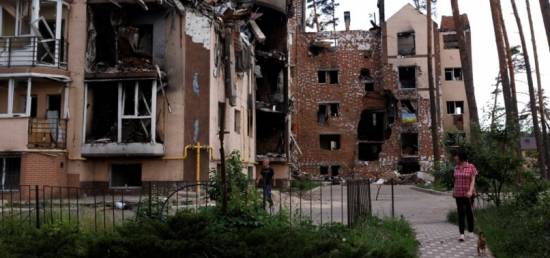The European Union has allocated another €205 million ($220 million) in humanitarian assistance for Ukraine “in light of the soaring humanitarian needs,” it announced on Thursday.
The new addition brings the bloc’s total humanitarian aid contribution to over €700 million in response to Russia's war on Ukraine.
“In this moment of crisis, our duty is to stand by the most vulnerable,” said EU Commissioner for Crisis Management Janez Lenarcic. “With this funding our humanitarian partners are providing food, water, healthcare, shelter, protection and cash assistance.”
Lenarcic, who visited the Ukrainian city of Irpin to meet humanitarian organizations and high level government officials to help coordinate EU's response on the ground, said he was "deeply shocked about the atrocities committed here."
"Civilians and civilian infrastructure must not be a target, never, nowhere. Again, I most strongly condemn the deliberate attacks against civilians and civilian infrastructure," he tweeted.
The 27 member states, as well as Türkiye, Norway and North Macedonia, have carried out the "largest ever mobilization" of the EU Civil Protection Mechanism to enable aid into Ukraine, the statement said.
In addition to the financial humanitarian aid, they provided more than 38,000 tons of aid, such as first aid kits, food, protective clothing, fire trucks, mobile hospitals, and energy supplies for a total value of €373 million.
Over 14 million people had to flee their homes in Ukraine since the beginning of the war in February, of which almost 7 million people have crossed the border to neighboring countries.
According to the UN, up to 15.7 million people require humanitarian assistance in the country.
Tons of Ukrainian and Russian grains and oilseeds remain shut in due to the military conflict, causing global shortages and price hikes. Russia, which is accused of using food as a weapon, says Western sanctions are to blame for the food shortages./agencies


